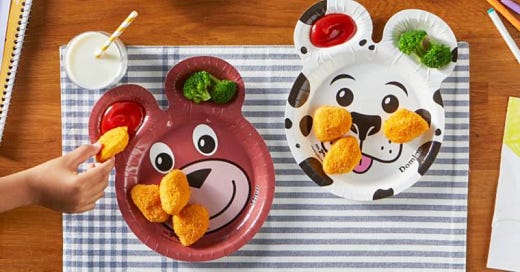The infomercials of 2000s hold a special place in a lot of people’s hearts. We remember things like Zoopals, The Slap chop, Billy Mays and lots of other things associated with them.
I think there is a lot to learn from informercials, especially considering how much real estate they take up in our brain even after 20 years or so. One specific aspect that I want to focus on is how they present their offer. Look at the Big City Slider infomercial and notice the language they use.
A lot of times with these types of commercials they will create add-on products to entice the viewer. In this specific example it was the special cookbook, the scoop, and the slicer added. In other infomercials you would hear offers like.
· “Buy now, get all these other products!”
· “But hold on we’re not done yet, we’ll double it for only X amount of money more!”
· “We’ll double the offer, just add shipping and handling!”
Sayings like this are intended to make the final value seem better than the original offer through add-ons. It makes the viewer think “what you were selling me before is worth $20 and now there is all this other stuff at the same price, this is a really good deal”. These add-ons are perceived as free to the customer, but in reality, are already baked into the final price. The company doesn’t really mean to sell you on the Big City Slider, but means to sell you the Big City Slider, cookbook, scoop and slicer.
This principle doesn’t only appear in the pricing or at the end of the commercial either. It runs through the entire thing, notice how many uses the Big City Slider has. It can be used to make burgers, breakfast sandwiches, and a patty mold. Just like with the add-ons, the more offers something has, the higher the value perceived by the customer.
This same principle of creating hard to turn down offers still has a place in business today. They just aren’t as upfront as they are in infomercials. One that sticks out is from a web security service, NordVPN. The main product/service is a VPN, which just allows you to hide or change your location when you are browsing the internet. It really doesn’t do much by itself. As a free add-on to the VPN, Nord offers other services such as a password manager, malware scanning, and ad blocker. This creates something customers can really get behind. All with the same price the customer was originally going to buy the product at.
Another example is through cell service companies like AT&T, T-Mobile and Verizon. A lot of times they will have offers like “buy this phone on us, just sign up another line for the cell service.” They’ll just tell you in the fine print that your “deal” is linked to the payment for your cell service. Meaning they give you the discount after the payment for the cell service is received on their end. While this does save the customer money, the whole point of the deal is to gain a long-lasting customer, with recurring payment. Again, just like with the prior examples, the company uses the add-on, the phone, to make the customer believe they are getting a deal they can’t turn down. It is especially effective because they get the customer in the door with a “free” or “on sale” tangible product. Then sell them what they intend to, the cell service.
Why do companies do this in the first place? I think it is because they are in a highly competitive industry. Just think, how many different informercials did you see in the 2000s selling the same product. If I remember correctly there were about a million different nonstick pans or slap chop type products. Companies had to make ways to differentiate themselves from being lumped in with the rest. One way to do that was make an offer that was harder to turn down than your competitor. Hence all the deals being added onto the base product.
Overall, I think it is an interesting case study on how marketing hasn’t really changed, the same stuff works, you just have to get a bit creative with it.


